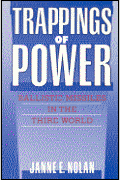Studies in this week’s Hutchins Roundup find that states that expanded Medicaid under the ACA saw an increase in prescription drug use, firms that were randomly assigned a minimum wage sought to hire more productive workers, and more.
Want to receive the Hutchins Roundup as an email? Sign up here to get it in your inbox every Thursday.
Medicaid expansions under the ACA increased prescription drug usage
Comparing states that expanded Medicaid to those that did not, Ausmita Ghosh of Indiana University – Purdue University Indianapolis, Kosali Simon of Indiana University, and Benjamin Sommers of Harvard find that the Affordable Care Act led to a 19 percent increase in Medicaid-paid prescription drug utilization. Prescriptions for diabetes medications, contraceptives and cardiovascular drugs increased the most, and the increases were larger in geographical areas with higher uninsured rates prior to the ACA. The authors find no evidence of a decline in uninsured or privately insured prescriptions, suggesting that increased utilization under Medicaid did not substitute for other forms of payment.
Faced with a minimum wage, firms replace less productive with more productive workers
In an experiment involving about 160,000 online job postings, John Horton of New York University finds that firms that were randomly assigned minimum wages made slightly fewer hires but paid significantly higher wages. The number of hours worked fell sharply, in part because firms that faced a minimum wage hired more productive workers as measured, for example, by workers’ past earnings and average wages. Although hiring changed little in response to the minimum wage, less productive workers appeared to be displaced.
Media-based measures of sentiment have more predictive power than conventional measures
Adam Hale Shapiro and Daniel Wilson of the San Francisco Fed and Moritz Sudhof of Kanjoya use computational text analysis to develop an index of sentiment embodied in economic and financial newspaper articles. Their method uses machine learning to assess the degree to which sentences in the articles express emotions like “negativity” or “satisfied.” This new index, constructed with 1980-2015 data from 16 major U.S. newspapers, correlates strongly with key business cycle indicators and generally predicts economic outcomes better than the University of Michigan and Conference board survey-based measures of consumer sentiment.
Chart of the week: Retirement of the baby-boom generation will substantially reduce the share of adults who work, especially among men
Quote of the week: “How quickly remaining slack is utilized and inflation returns to target depends on future growth in activity,” says Federal Reserve Board Governor Lael Brainard.
“Based on recent spending indicators, we might expect progress to continue to be gradual and steady. However, if fiscal policy changes lead to a more rapid elimination of slack, policy adjustment would, all else being equal, likely be more rapid than otherwise… When the economy eventually returns to full employment and 2 percent inflation, the appropriate level of the federal funds rate will depend on the level of the neutral rate, which is expected to move up only modestly in coming years from its current low level. On the one hand, if progress on employment and inflation occurs more quickly than I anticipate, foreign risks recede, and the fiscal impulse rises, the neutral rate might rise more rapidly. On the other hand, global economic conditions may somewhat offset the effect on the neutral rate. With weak domestic demand abroad, further tightening of financial conditions through the exchange rate could lead to some spillover of demand across borders, weighing on U.S. exports, investment, and manufacturing activity and potentially constraining the neutral rate.”
The Brookings Institution is committed to quality, independence, and impact.
We are supported by a diverse array of funders. In line with our values and policies, each Brookings publication represents the sole views of its author(s).











Commentary
Hutchins Roundup: Medicaid expansions, minimum wage, and more
Thursday, January 18, 2017